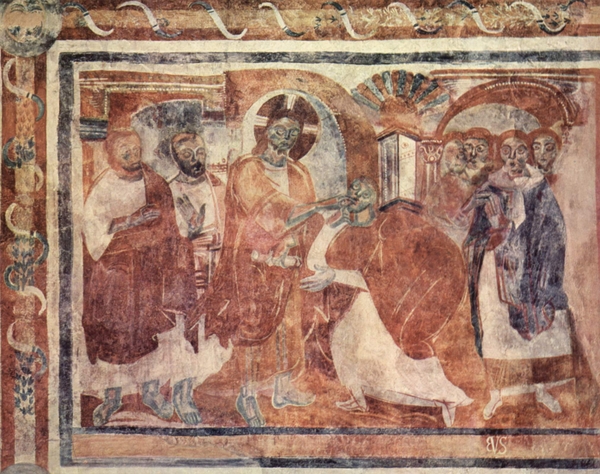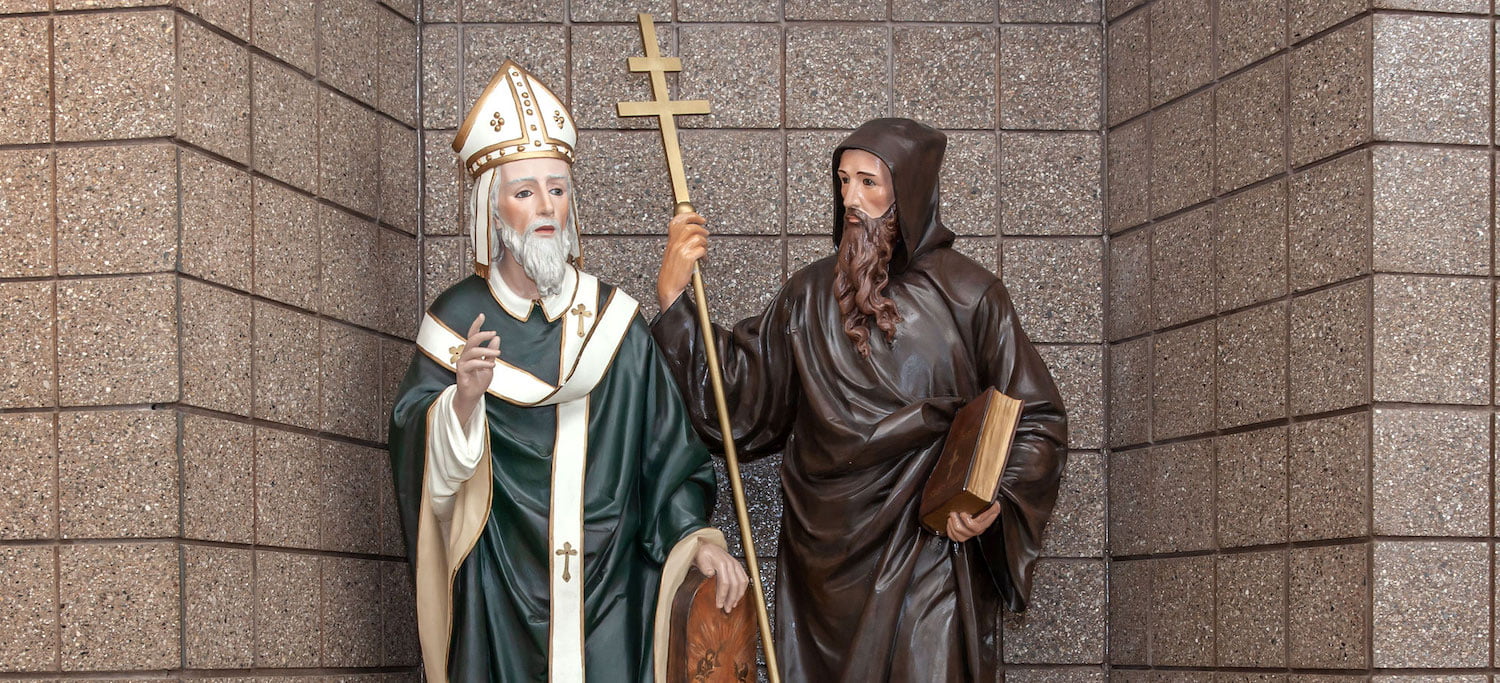Saints Cyril, monk, and Methodius, Bishop on Friday of week 5 in Ordinary Time  Sts. Cyril and Methodius Catholic Church, Shiner, TX Readings at MassLiturgical Colour: White. Year: C(I). These are the readings for the feria
The fall of manThe serpent was the most subtle of all the wild beasts that the Lord God had made. It asked the woman, ‘Did God really say you were not to eat from any of the trees in the garden?’ The woman answered the serpent, ‘We may eat the fruit of the trees in the garden. But of the fruit of the tree in the middle of the garden God said, “You must not eat it, nor touch it, under pain of death.”’ Then the serpent said to the woman, ‘No! You will not die! God knows in fact that on the day you eat it your eyes will be opened and you will be like gods, knowing good and evil.’ The woman saw that the tree was good to eat and pleasing to the eye, and that it was desirable for the knowledge that it could give. So she took some of its fruit and ate it. She gave some also to her husband who was with her, and he ate it. Then the eyes of both of them were opened and they realised that they were naked. So they sewed fig-leaves together to make themselves loin-cloths. The man and his wife heard the sound of the Lord God walking in the garden in the cool of the day, and they hid from the Lord God among the trees of the garden.
Happy the man whose offence is forgiven. Happy the man whose offence is forgiven, whose sin is remitted. O happy the man to whom the Lord imputes no guilt, in whose spirit is no guile. Happy the man whose offence is forgiven. But now I have acknowledged my sins; my guilt I did not hide. I said: ‘I will confess my offence to the Lord.’ And you, Lord, have forgiven the guilt of my sin. Happy the man whose offence is forgiven. So let every good man pray to you in the time of need. The floods of water may reach high but him they shall not reach. Happy the man whose offence is forgiven. You are my hiding place, O Lord; you save me from distress. You surround me with cries of deliverance. Happy the man whose offence is forgiven.
Alleluia, alleluia! Your words are spirit, Lord, and they are life; you have the message of eternal life. Alleluia!
Alleluia, alleluia! Open our heart, O Lord, to accept the words of your Son. Alleluia!
'He makes the deaf hear and the dumb speak'Returning from the district of Tyre, Jesus went by way of Sidon towards the Sea of Galilee, right through the Decapolis region. And they brought him a deaf man who had an impediment in his speech; and they asked him to lay his hand on him. He took him aside in private, away from the crowd, put his fingers into the man’s ears and touched his tongue with spittle. Then looking up to heaven he sighed; and he said to him, ‘Ephphatha’, that is, ‘Be opened.’ And his ears were opened, and the ligament of his tongue was loosened and he spoke clearly. And Jesus ordered them to tell no one about it, but the more he insisted, the more widely they published it. Their admiration was unbounded. ‘He has done all things well,’ they said ‘he makes the deaf hear and the dumb speak.’ These are the readings for the memorial
Since you have rejected the word of God, we must turn to the pagansPaul and Barnabas spoke out boldly. ‘We had to proclaim the word of God to you first, but since you have rejected it, since you do not think yourselves worthy of eternal life, we must turn to the pagans. For this is what the Lord commanded us to do when he said: I have made you a light for the nations, so that my salvation may reach the ends of the earth.’ It made the pagans very happy to hear this and they thanked the Lord for his message; all who were destined for eternal life became believers. Thus the word of the Lord spread through the whole countryside.
Go out to the whole world and proclaim the Good News. O praise the Lord, all you nations, acclaim him all you peoples! Go out to the whole world and proclaim the Good News. Strong is his love for us; he is faithful for ever. Go out to the whole world and proclaim the Good News.
Alleluia, alleluia! The Lord has sent me to bring the good news to the poor, to proclaim liberty to captives. Alleluia!
Your peace will rest on that manThe Lord appointed seventy-two others and sent them out ahead of him, in pairs, to all the towns and places he himself was to visit. He said to them, ‘The harvest is rich but the labourers are few, so ask the Lord of the harvest to send labourers to his harvest. Start off now, but remember, I am sending you out like lambs among wolves. Carry no purse, no haversack, no sandals. Salute no one on the road. Whatever house you go into, let your first words be, “Peace to this house!” And if a man of peace lives there, your peace will go and rest on him; if not, it will come back to you. Stay in the same house, taking what food and drink they have to offer, for the labourer deserves his wages; do not move from house to house. Whenever you go into a town where they make you welcome, eat what is set before you. Cure those in it who are sick, and say, “The kingdom of God is very near to you.”’
Christian Art Each day, The Christian Art website gives a picture and reflection on the Gospel of the day. The readings on this page are from the Jerusalem Bible, which is used at Mass in most of the English-speaking world. The New American Bible readings, which are used at Mass in the United States, are available in the Universalis apps, programs and downloads. |




